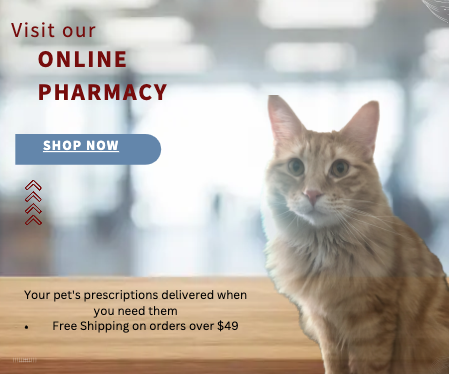
Your senior dog means the world to you, and ensuring they live a healthy, happy life is your top priority. As dogs age, their nutritional needs change, prompting a need for adjustments in their diet.
Perhaps you’ve noticed your furry friend isn’t as enthusiastic about mealtime as they used to be or maybe they’re dealing with health issues that demand dietary changes. Whatever the case may be, upgrading their nutrition is crucial.
This blog post will guide you through understanding senior dog nutrition, including protein, fiber, omega-3s and choosing the right food for your beloved pet. Ready to make mealtime marvelous again?
Understanding Senior Dog Nutrition
As your dog ages, their nutritional needs shift and become more specific. Grasping the basics of senior dog nutrition is key to keeping them healthy and active in their later years.
Defining “Senior” in Dogs
A dog becomes classified as “senior” based on its size and breed, typically around the age of 7 to 10 years. Large breeds often reach senior status earlier than smaller breeds due to their shorter lifespans.
This stage in a dog’s life brings changes that affect nutritional needs.
As dogs enter their senior years, they may show signs of aging such as decreased activity levels and potential health issues like joint problems or heart disease. These changes make it crucial for pet owners to adjust their dog’s diet to support overall health and well-being during this life phase.
Health Problems that Affect Diet
Aging dogs may face health issues that affect their diet like the following:
- arthritis
- obesity
- cardiovascular disease
- dental problems
- kidney disease
Key Nutrients for Senior Dogs
Senior dogs have unique dietary needs that require special attention. As they age, their bodies undergo changes that can impact how they process food and absorb nutrients. Feeding your senior dog a diet rich in key nutrients helps support their overall health and well-being.
Choosing the right food for your aging pet ensures they get everything necessary to thrive during their golden years.
Protein Needs
Protein plays a crucial role in your senior dog’s diet, ensuring they maintain muscle mass and overall health. It is suggested that pet owners must aim for 28 to 32 percent protein on a dry-matter basis for healthy older dogs.
This level supports their bodily functions without overburdening their kidneys or liver. For the best results, consider incorporating high-quality sources of protein that are easy for your senior pet to digest.
Importance of Fatty Acids
Fatty acids, such as omega-3 and omega-6, play a crucial role in senior dog nutrition. These nutrients help maintain healthy skin, support joint health, and can improve cognitive function in older dogs.
Balancing good fats from sources like fish oil and flaxseed oil against their daily activity level ensures your pet gets the health benefits without excess calories.
Incorporating fatty acids into a senior dog’s diet also helps manage inflammation and supports heart health. Omega-3 fatty acids from fish oil are especially beneficial for seniors, promoting overall well-being.
Considerations for Calorie Intake
Senior dogs have different caloric needs compared to their younger counterparts.
Due to a decrease in activity level and metabolic rate, older dogs do not require as many calories. Feeding them food that is less calorie-dense helps prevent unwanted weight gain, which can add stress on aging joints and organs.
- Monitor your senior dog’s weight regularly to adjust their diet accordingly.
- Choose senior diets that are formulated with appropriate nutrient limits to meet their specific needs without overfeeding.
- Balance calorie intake with daily activity levels; more sedentary dogs will need fewer calories.
- Consult your vet for personalized advice on the correct number of calories for your dog, considering their health status and lifestyle.
Supplements for Senior Dogs
Supplements can play a key role in supporting the health and wellness of senior dogs. They might need extra support that their regular diet doesn’t provide.
- antioxidants such as vitamins E and C, selenium, and beta-carotene
- glucosamine and chondroitin supplements
Proper dosage is essential to ensure safety and effectiveness of any supplement regime for your senior dog. Following veterinary advice helps prevent overdosing or interactions with other medications.
Tips for Feeding Senior Dogs
Discover how to keep your senior dog happy and healthy with these feeding tips, ensuring they enjoy their golden years to the fullest.
Dealing with Picky Eaters
Dealing with picky eaters requires patience and creativity. You might find that offering multi-protein formulas not only boosts their protein intake but also encourages a healthy appetite in your senior dog.
Sometimes, adding supplements or changing the feeding schedule can entice picky eaters to show more interest in their food. Keep an eye on how much they enjoy different textures or flavors, since this can guide you toward better meal options.
Dental Health for Senior Dogs
As dogs age, they become more susceptible to dental problems like gum disease and tooth loss. These issues can make eating painful and may lead to further nutritional deficiencies if not properly managed.
Regular veterinary check-ups can help catch these problems early.
To support your senior dog’s dental health, incorporate foods that are easy on their teeth yet still provide the necessary nutrients. Softened kibble or wet food might be easier for them to handle if chewing becomes difficult due to weakened teeth or gum pain.
Dental treats designed for older dogs can also promote oral hygiene by reducing plaque buildup while providing a tasty snack.
Meeting the Needs of Small and Large Breeds
Small breed dogs often require more calories per pound compared to their larger counterparts due to their faster metabolisms. This means their diets should be calorie-dense yet balanced to prevent weight gain while supporting energy levels.
For large breed senior dogs, joint health becomes a significant concern; diets rich in omega-3 fatty acids can aid in reducing inflammation associated with arthritis.
Each breed size has unique dietary requirements that must be met for optimal health and well-being during their golden years.
Ensure Your Senior Furry Friend Gets the Right Dog Nutrition Today!
Ensuring your senior dog gets the right nutrition with ample protein, fiber, and omega-3s makes a big difference in their health. Simple changes like adjusting protein levels as recommended by experts can boost their vitality.
Why not explore options today with Creedmoor Road Animal Hospital to see what works best for your furry friend? Your commitment can transform their golden years into a period of renewed energy and happiness. Schedule an appointment with our clinic today!


